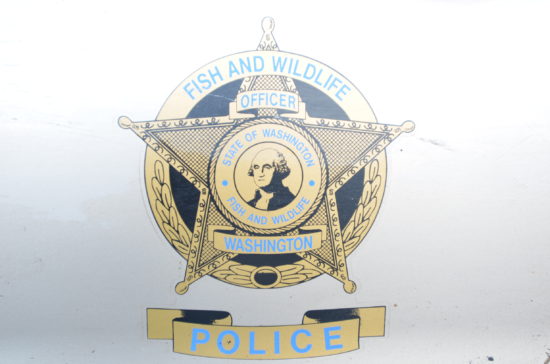
WDFW Proposing Changes To How Poaching Is Prosecuted
WDFW is proposing a suite of changes to how some fish and wildlife violations are prosecuted by counties across Washington.
If greenlighted by the Fish and Wildlife Commission later this week, state lawmakers next year would be asked to pass a bill that addresses how those are charged, the forfeiture of poached animal parts, and require courts to inform the agency of their rulings.

For law-abiding sportsmen, it can be maddening how how long it can seem to take for poachers to be brought to justice — if they’re even charged at all.
In the former case it is often because despite state game wardens dutifully filing their case reports, county prosecutors and court systems have such heavy workloads and limited funding that it makes it difficult for them deal with fish and wildlife violators when there’s such a clamor from the public to go after other offenders and property crimes.
But dismissing critter cases can lead to diminished perceptions of the value of deer, salmon and other species.
And for really bad apples, it “decriminalizes these activities, allowing repeat offenders to poach without fear of punishment,” according to WDFW.
Briefing the citizen oversight panel earlier this month, outgoing legislative liaison Raquel Crosier told commissioners said the package would accomplish several things.
“The first thing it does is it reduces lower level fish and wildlife crimes to a civil infraction. This is really important because local courts are bogged down. They’ve got a lot of other cases — homicides, DUIs — and our cases often don’t get heard, and when they do it may be two, three years later,” Crosier said.
Changing misdemeanors to infractions would treat those violations “closer to a traffic ticket” that must be paid or contested in civil court, she said.
“We want some type of repercussion for these crimes, but we don’t want someone waiting for a long time with a criminal record in the meantime,” Crosier said.
Another aspect of the proposal is that it would tweak how conviction is defined, Crosier said.
The way some poaching cases are prosecuted can require WDFW to return seized fish and wildlife under certain circumstances.
“We just really want to make sure, regardless of the court outcome, we can still seize animal parts. Sometimes through a plea deal they end up allowing them to keep them. We don’t think poached animal parts should be kept under any circumstances,” said Crosier.
Several years ago, state lawmakers at WDFW’s behest stiffened penalties for those who knowingly trespassed to not allow them to keep any game they killed. Before, those chasing deer, elk or other game on private property only faced a fine of a couple hundred bucks or so, worth the cost for some when the animals taken were of trophy caliber.
The other major change being proposed would require courts to notify WDFW of how cases turn out.
“The Department cannot effectively manage bad actors and revoke licenses or prevent a criminal from purchasing a new fishing or hunting license if the Department is not aware cases rulings or dispositions. This proposal would add a new statute, requiring the clerk of the court hearing the case to prepare and immediately forward an abstract of the court record to WDFW Enforcement,” a commission briefing statement reads.
The agency has been working on the tweaks for awhile and it appears that a proposal to revoke licenses for two violations in five years — currently it’s three in 10 — is not included in the bill.
Commissioners had numerous questions about that during their Aug. 2 meeting. Staffers say that a “preliminary analysis” on that plus plans to also work on commercial revocations mean it’s been backburnered to 2021.
As it stands, the commission is slated to give the package a thumbs-up or -down at its Aug. 23 conference call.
The next step after that would be for a bill to be written, be introduced by lawmakers and have public hearings held on it.
It would need to pass both chambers and be signed into law by the governor.
It all might be a bit of a challenge, given the short 60-day session, but WDFW staffers have cut back their legislation requests for 2020 from five bills to this and another dealing with part of its budget and transparency.
Get a Free NewsLetter Here
[hubspot type=form portal=5325588 id=614ee0f1-9297-4340-b0f4-5b40dfd45220]

